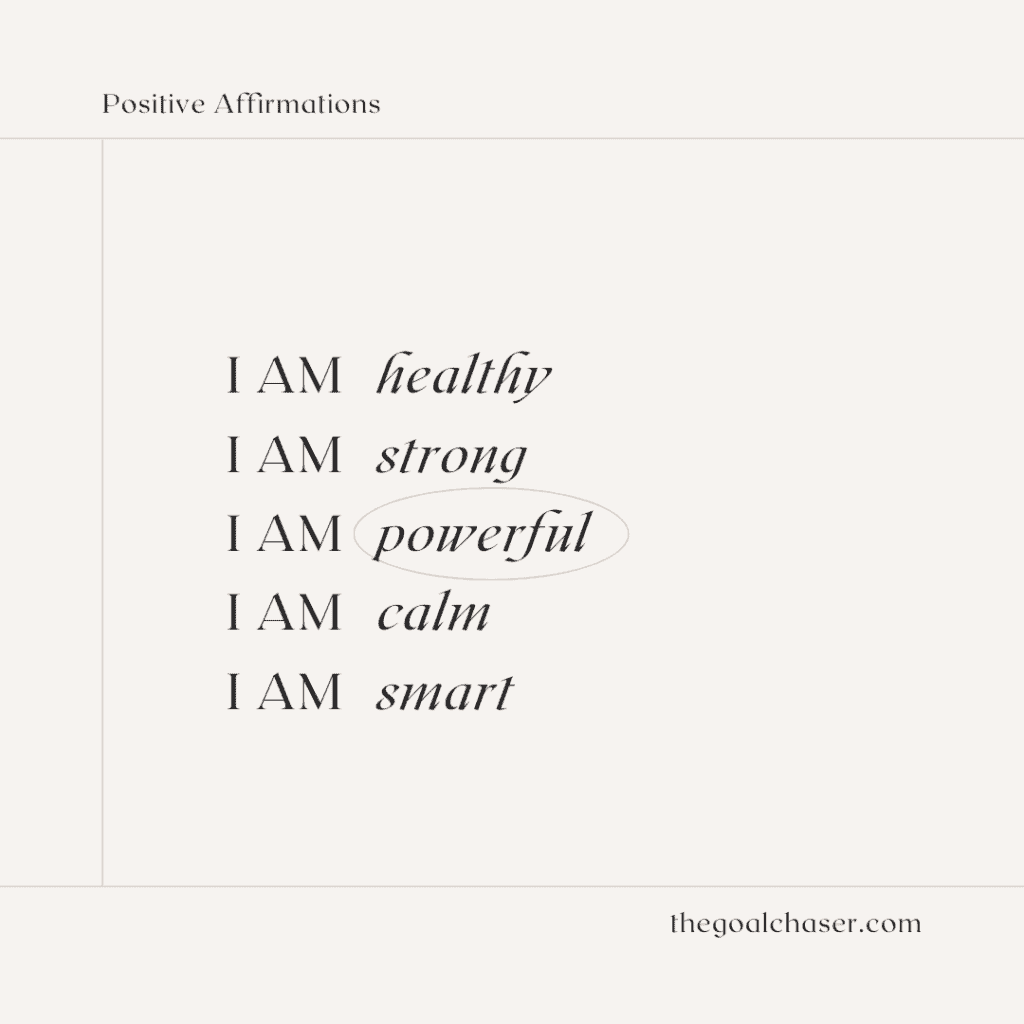How To Write Affirmations – Specific, Meaningful & Effective
Affirmations are positive statements that you repeat to yourself regularly, with the goal of shifting your mindset and achieving desired outcomes.
The power of affirmations lies in their ability to reprogram the thoughts we hold about ourselves and the world around us. When we repeat positive affirmations that are focused on what we do want in life, we are taking conscious steps towards better thoughts, feelings, actions and outcomes.
Writing your own affirmations can be an effective way to clarify your own personal goals and intentions, and start working on those thoughts and beliefs that we all hold on to – some that are no longer serving us very well.
In order to create change and grow with new goals, it’s therefore important to be clear about what thoughts we need to be thinking instead.
In this article, we’ll explore how to write the most effective affirmations by taking into account where we are wanting to go, and directing our thoughts there instead. It’s a simple and deliberate approach and a powerful tool for achieving goals in life.
How To Write Affirmations That Are Meaningful & Effective
The following steps are a simple approach to create your own meaningful positive affirmations:
1. Identify Your Desired Outcome
The first step to writing effective personal affirmations is to identify your desired outcome.
What do you want to achieve? Whether it’s improving your self-esteem, reducing stress, or achieving a specific goal, it’s important to be clear about what you want to manifest in your life.
2. Use Positive Language
When writing your own affirmations, use positive language that affirms what you want, rather than what you don’t want.
Focus on what you want to achieve, rather than what you want to avoid.
For example, instead of saying ‘I am not anxious,’ say ‘I am calm and relaxed.’ Instead of saying ‘I am not lazy‘, say ‘I am productive‘.
3. Be Specific & Realistic
Make your affirmations specific to you and what you are wanting for your life.
Avoid generalizations and be precise about what you want to achieve.
Your affirmations should also be realistic, so that you can truly believe in them and take action towards achieving them. If they are too far-fetched for your mind right now, they will be completely ignored.
Instead, start will upleveling your thoughts gradually. For example, if you’ve long struggled with low body image, instead of saying ‘I love my body completely‘, start by gradually shifting to ‘I am learning to accept and respect my body.’
4. Use The Present Tense
Write your affirmations in the present tense, as if they are already true.
This helps to reprogram your mind and make your goals feel more attainable.
For example, instead of saying ‘I will be successful,’ say ‘I am successful.’
5. Add Emotion & Visualization
Adding emotion and visualization to your affirmations makes them more powerful.
Imagine how it will feel when you achieve your desired outcome, and incorporate that feeling into your affirmation.
For example, instead of saying ‘I am healthy,’ say ‘I am radiating with health and vitality.’
Types of Affirmations
Affirmations can be used in all areas of life to challenge and change your thoughts to better, more powerful and empowering thoughts. For ideas, check out the following lists of affirmations:
- Affirmations For Motivation
- Affirmations For Body Image
- Affirmations For Abundance
- Affirmations for Weight Loss
- Affirmations for Self Esteem, Confidence & Self Love
Tips for Using Affirmations
Once you’ve decided on or written your own affirmations, the following tips can help integrate them into your thoughts and way of life:
- Practice Self-Compassion
It’s important to be kind and gentle with yourself as you start incorporating affirmations into your life.
Recognize that it may take time to see results and that setbacks are a natural part of the process.
Treat yourself with compassion and understanding, and celebrate your progress along the way. It’s very empowering when you start to notice how you are naturally thinking these new thoughts.
- Combine Affirmations with Other Tools
Affirmations work best when used in conjunction with other self-care practices, such as exercise, meditation, or journaling.
These practices can help you stay focused and motivated, and can also enhance the effectiveness of your affirmations.
- Overcome Resistance to Your Affirmations
If you find yourself resistant to your affirmations, it’s important to explore the underlying beliefs or fears that may be holding you back.
Consider seeking the help of a therapist or coach, or try journaling to uncover any negative thought patterns or limiting beliefs that may be affecting your ability to embrace the new affirmations.
By following these tips, you can incorporate affirmations into your daily routine in a way that feels authentic and effective.
Remember that affirmations are a tool for personal growth and self-improvement, and that with practice and patience, you can achieve your desired outcomes and live a more fulfilling life.
For more content on affirmations, check out:
- The Benefits of Affirmations: A Tool For Change & Growth
- Law Of Assumption Affirmations: For Your Desired State






